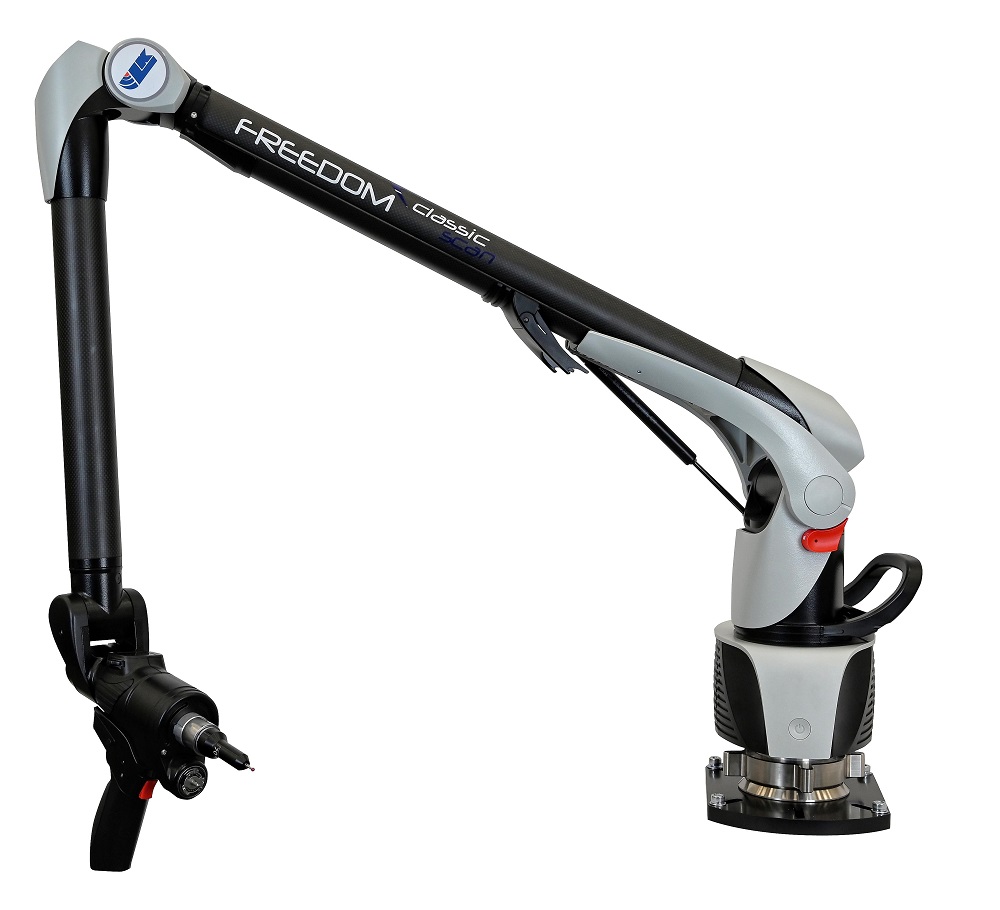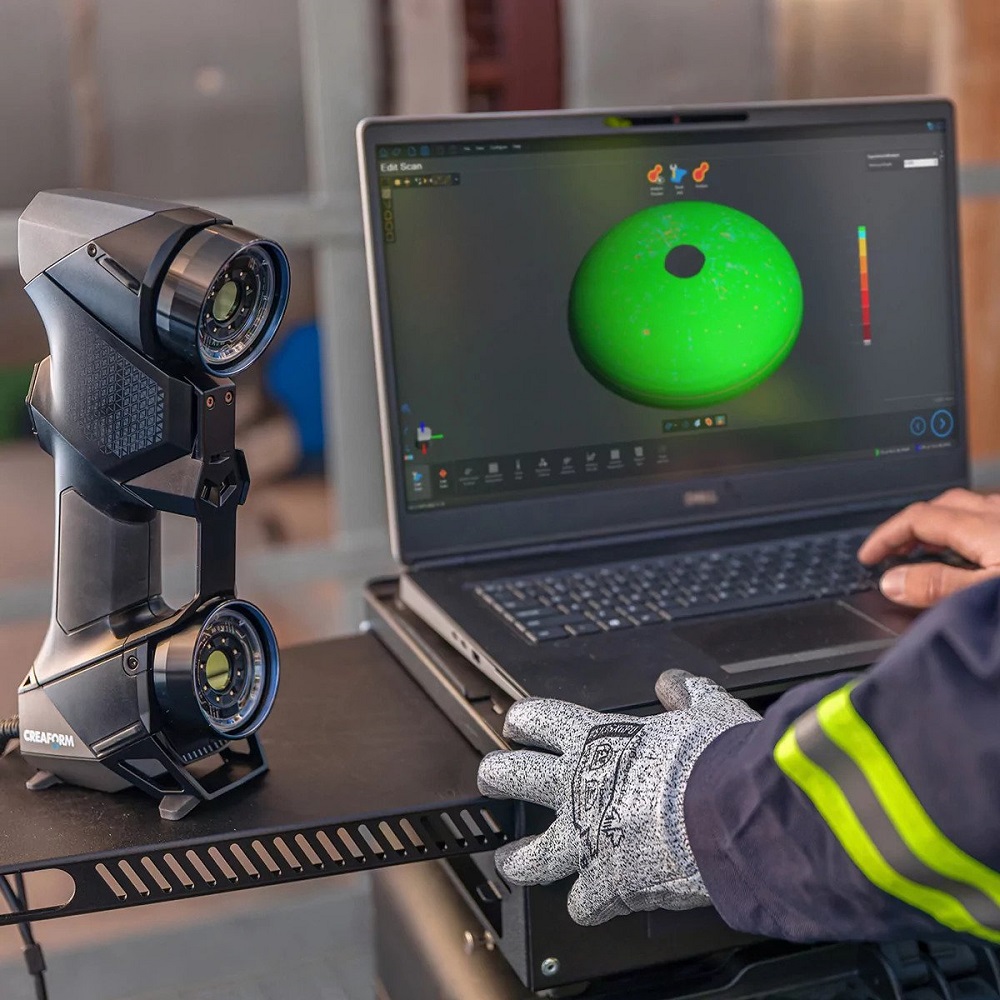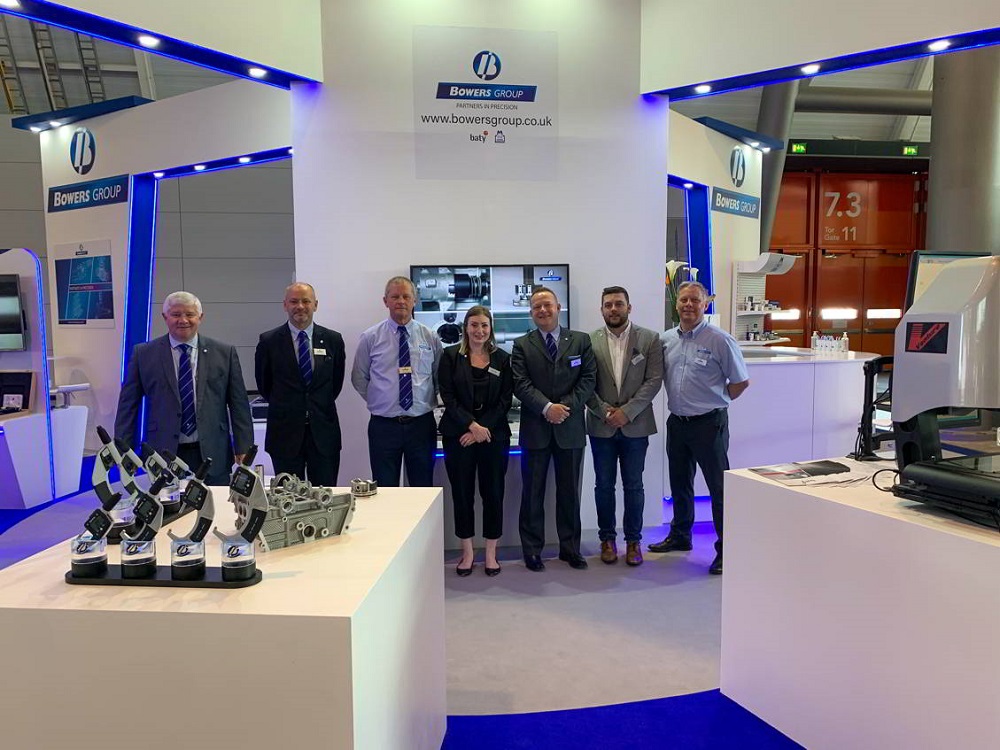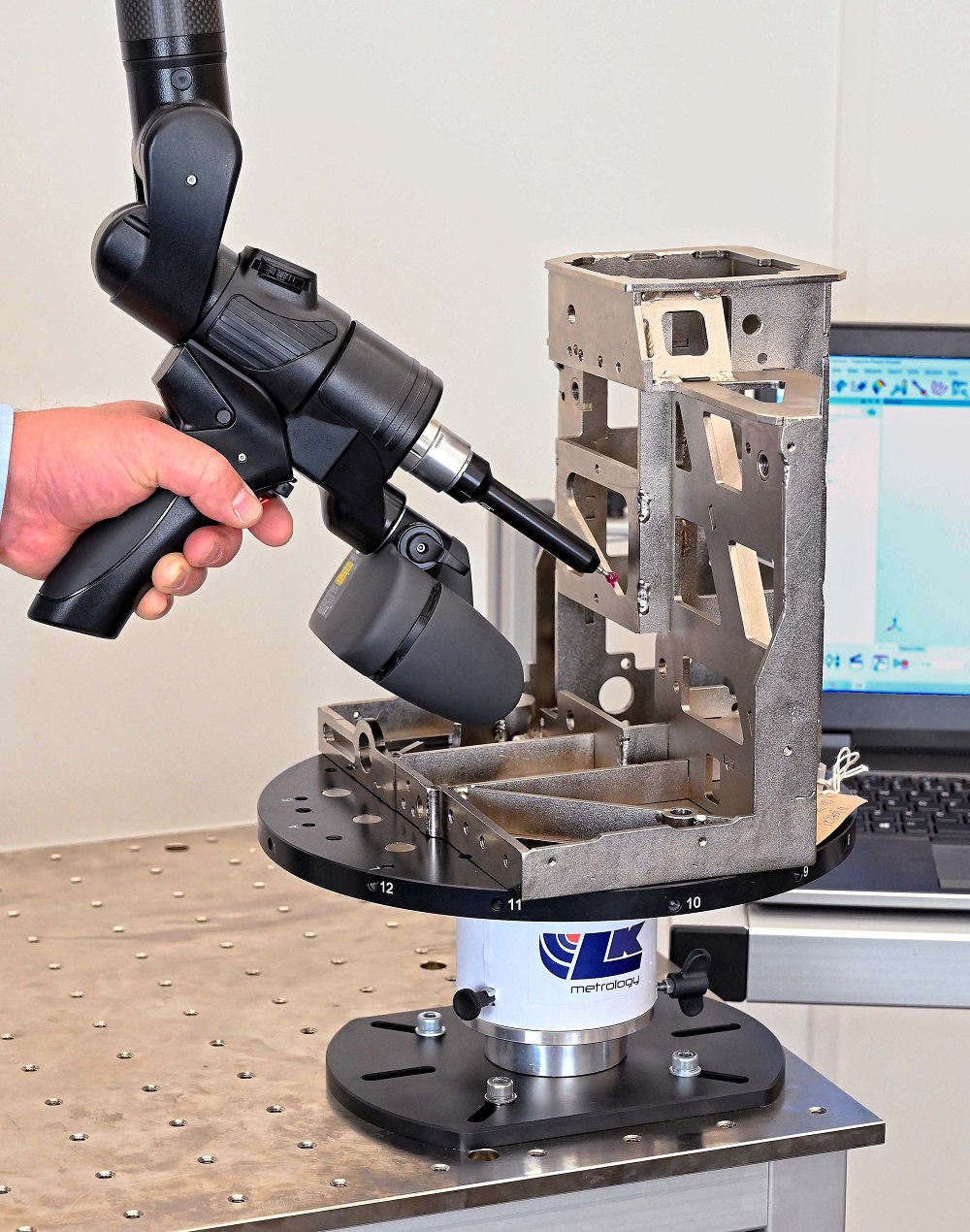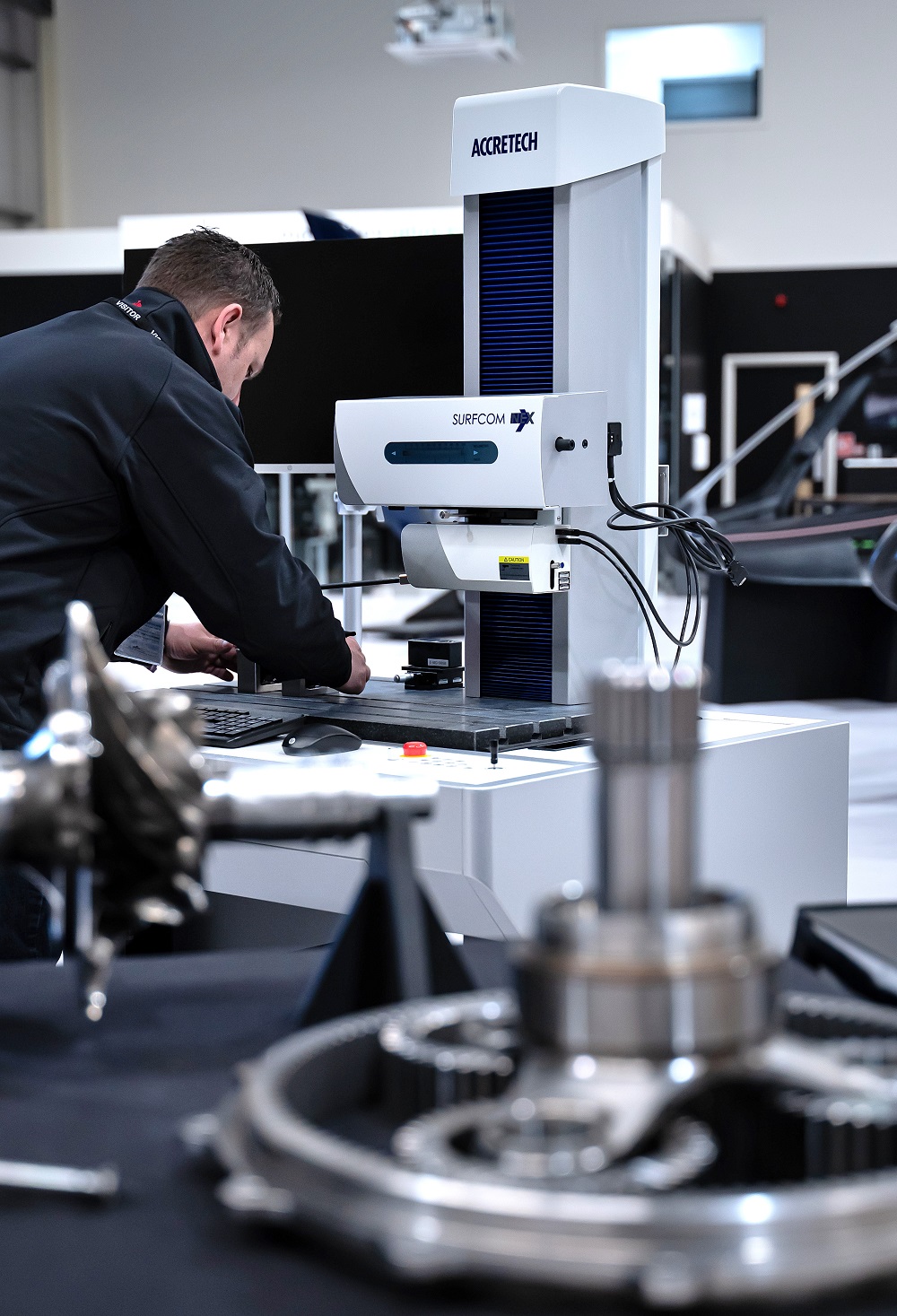A new range of portable six-axis and seven-axis measuring arms is now available from LK Metrology, replacing the 34 original versions it introduced in 2021. Unlike their predecessors, six-axis Freedom Arm v2 products offer full IP54 protection from water splashes and the ingress of dust and particles, delivering reliable, repeatable, 3D tactile inspection and measurement in harsh industrial environments.
Available also is a new range of 21 stainless steel-tipped probes with a stainless steel or carbon fibre body, as well as updated RDS software v6.2 running on Windows for communicating with the arm via Wi-Fi or USB. For full IP54 protection of an arm, the probes have a rubber seal around the mounting interface while protective caps cover the arm ODU connectors. Additionally, a CP-W control pack features Wi-Fi connectivity and uses batteriesrather than mains power. An operator alert is among additions to the RDS software, warning the user if an arm does not have full IP54 protection.
The new seven-axis Freedom Arm v2 is not IP54 rated but is able to deploy a laser scanner and a tactile probe, thus makingit capable of multi-sensor data capture. A new OLED touchscreen display provides the operator with convenient fingertip control, enabling users to change settings, view messages and check results. It raises inspection productivity by avoiding the need to go back and forth between the arm and computer. Also new is a CP-B battery pack with Ethernet connection for probe and laser scanner use in environments where Wi-Fi is not permissible. The CP-B comes with two rechargeable batteries featuring hot-swap capability for unlimited continuous use on battery power.
For further information www.lkmetrology.com






